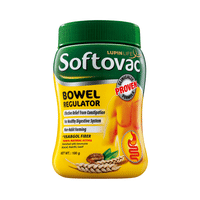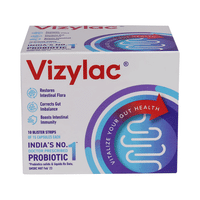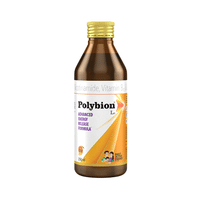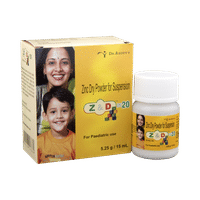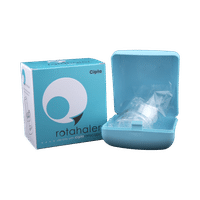Rs.45.60for 1 vial(s) (1 Injection each)
food interaction for Glacef SB
alcohol interaction for Glacef SB
pregnancy interaction for Glacef SB
lactation interaction for Glacef SB
food
alcohol
pregnancy
lactation
No interaction found/established
Consuming alcohol with Glacef SB 250mg/125mg Injection does not cause any harmful side effects.
SAFE
Glacef SB 250mg/125mg Injection is generally considered safe to use during pregnancy. Animal studies have shown low or no adverse effects to the developing baby; however, there are limited human studies.
SAFE IF PRESCRIBED
Glacef SB 250mg/125mg Injection should be used with caution during breastfeeding. Breastfeeding should be held until the treatment of the mother is completed and the drug is eliminated from her body.
CAUTION
SALT INFORMATION FOR Glacef SB
Ceftriaxone(250mg)
Uses
Ceftriaxone is used in the treatment of bacterial infections.
How it works
Ceftriaxone is an antibiotic. It kills the bacteria by preventing them from forming the bacterial protective covering (cell wall) which is needed for them to survive.
Common side effects
Diarrhea, Rash, Nausea, Vomiting, Fever, Headache, Dizziness, Itching, Increased white blood cell count (eosinophils), Decreased white blood cell count, Low blood platelets, Increased liver enzymes, Genital fungal infection, Granulocytopenia, Anemia (low number of red blood cells), Coagulation disorder, Thrombophlebitis, Injection site pain, Increased creatinine level in blood, Increased prothrombin time, Decreased prothrombin time, Increased alkaline phosphatase level in blood, Increased bilirubin in the blood, Pseudomembranous colitis, Encephalopathy, Bronchospasm, Urticaria, Blood in urine, Glycosuria, Edema (swelling)
Sulbactam(125mg)
Uses
Sulbactam is used in the treatment of severe bacterial infections. It treats severe bacterial infections (most commonly pneumonia, bacteremia and skin and skin structure infections) caused by the pathogen Acinetobacter baumanii.
How it works
Sulbactam is a beta-lactamase inhibitor. It works by blocking an enzyme called beta lactamase produced by bacteria to inactivate antibiotics. Sulbactam is frequently combined with beta-lactam antibiotics, such as ampicillin, cefoperazone, meropenem. As a single medicine, it treats infection caused by a type of bacterium called Acinetobacter baumanii. This activity is mediated by its interaction with certain proteins.
Common side effects
Diarrhea, Injection site pain
SUBSTITUTES FOR Glacef SB
805 Substitutes
805 Substitutes
Sorted By
 Rs. 52save 89% more per ml of Injection
Rs. 52save 89% more per ml of Injection Rs. 44.50save 5% more per ml of Injection
Rs. 44.50save 5% more per ml of Injection Rs. 81.60pay 73% more per Injection
Rs. 81.60pay 73% more per Injection Rs. 81.60save 65% more per ml of Injection
Rs. 81.60save 65% more per ml of Injection Rs. 81.60save 65% more per ml of Injection
Rs. 81.60save 65% more per ml of Injection
Expert advice FOR Glacef SB
- Your doctor has prescribed Ceftriaxone to cure your infection and improve your symptoms.
- Do not skip any doses and finish the full course of treatment even if you feel better. Stopping it early may make the infection harder to treat.
- Discontinue Ceftriaxone and inform your doctor immediately if you get a rash, itchy skin, swelling of face and mouth, or have difficulty in breathing.
- Diarrhea may occur as a side effect but should stop when your course is complete. Inform your doctor if it does not stop or if you find blood in your stools.
Frequently asked questions FOR Glacef SB
Ceftriaxone
Q. Is Ceftriaxone safe?
Ceftriaxone is safe if used in the dose and duration advised by your doctor. Take it exactly as directed and do not skip any dose. Follow your doctor's instructions carefully and let your doctor know if any of the side effects bother you.
Q. How long does Ceftriaxone take to work?
Usually, Ceftriaxone starts working soon after you take it. However, it may take some days to kill all the harmful bacteria and relieve your symptoms completely.
Q. Who should not take Ceftriaxone?
Ceftriaxone should not be prescribed to people who are allergic to Ceftriaxone or any of its ingredients. Inform your doctor if you have or ever had any problems with your liver, kidneys, gall bladder, or any other blood-related disorders such as hemolytic anemia. If you are pregnant, breastfeeding or if you are planning a baby, do not take Ceftriaxone without consulting your doctor to avoid any harmful effects on the baby. Let your doctor know about all the other medicines you are taking because they may affect, or be affected by, this medicine.
Sulbactam
Q. Why is Sulbactam added to other antibiotics?
Sulbactam added to other antibiotics like ampicillin, cefoperazone, etc., because Sulbactam contains Sulbactam, a beta-lactamase inhibitor, which reduces resistance and enhances the activity of other antibiotics like ampicillin, cefoperazone, etc., against the bacteria.
Q. Who should not take Sulbactam?
Sulbactam should not be taken by an individual if he/she had an allergic reaction to ampicillin, sulbactam, or any penicillin antibiotic (such as penicillins or cephalosporins), or if he/she has a history of liver problems caused by ampicillin/sulbactam.
Q. What should I discuss with my doctor before receiving Sulbactam?
Before taking Sulbactam, you should tell your doctor if you have ever had an allergic reaction to Sulbactam or any similar medicine. Inform the doctor if you have any type of allergy, asthma or breathing problems, heart disease or kidney disease. Let your doctor know about all the medicines that you may be taking as they may affect or be affected by Sulbactam. Pregnant or breastfeeding mothers should also seek their doctor’s advice before taking Sulbactam.















